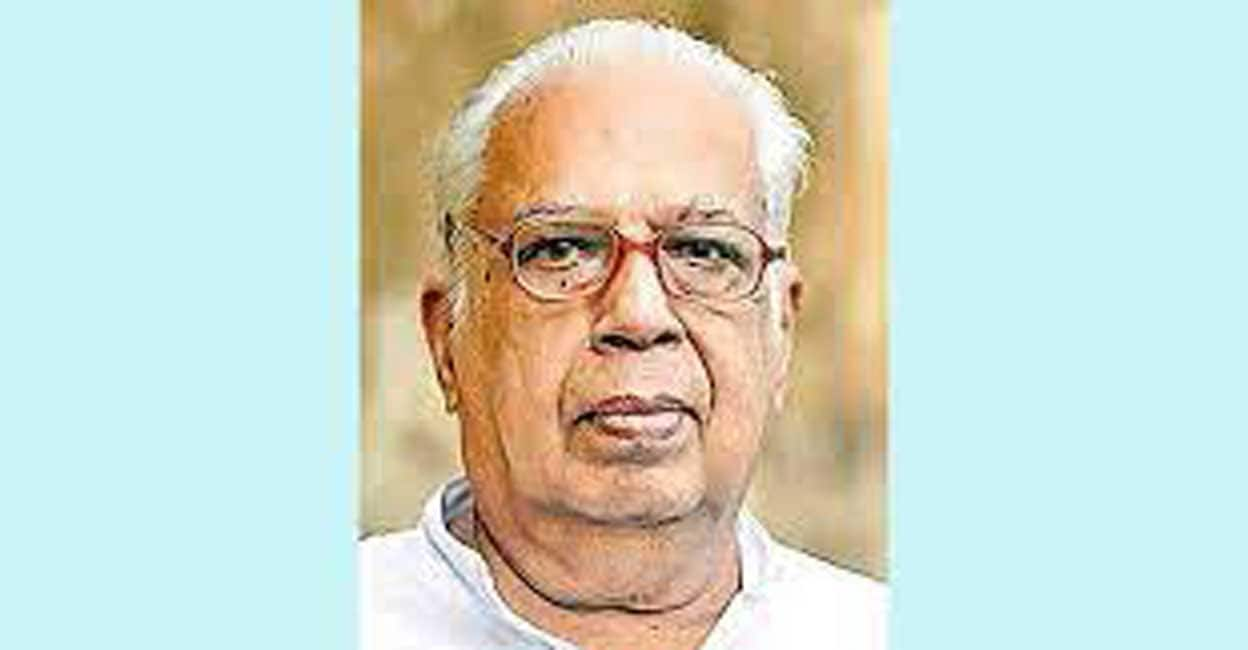Column | When a bureaucrat wrote about Wayanad’s ‘African’ Adivasis

Mail This Article
The modern Indian (and by default, Malayali) discourse on indigenous people and Africa has largely been shaped by our erstwhile colonial masters. This ‘saviour complex’ that the British and other Europeans suffered from was diligently passed on to the country’s ruling class when India became independent. At a time when it was common for Indian bureaucrats to have a neo-colonial mindset when dealing with Adivasis, one officer with the revenue department chose to swim against the tide.
In 1958, 31-year old Kunhiraman Panoor was appointed as a tribal welfare officer in northern Kerala. Over the next five years, he would travel to some of the most remote corners of the hills and interact with the indigenous people of northern Kerala such as the Koragar, Kurichiyas, Paniyas and Adiyas.
The result of this five-year deputation was a travelogue titled Keralathile Africa, which translates as “An Africa in Kerala.” This unflattering travelogue set in the lush, green and forested Western Ghats was the first Malayalam book to highlight the immense adversities in the lives of the indigenous people of northern Kerala. The word Africa was used in the title to show that social, health and overall human development factors among the Adivasis were as bad as those of some tribes in sub-Saharan Africa at that time.
Adivasi customs and history
Keralathile Africais by no means a simple rant about the life of the Adivasis.
In this book a reader gets a much better understanding of the culture, customs and history of different indigenous groups. For instance, there is a detailed explanation of the social hierarchy of the Kurichiya, whose leader is the Moopan, a king, spiritual leader and doctor all in one.
Panoor mentioned the story of the Kurichiya community swearing loyalty to Pazhassi Raja, a 19th century prince of Kottayam in Malabar, who fought a war against the East India Company for a period of 13 years. The Kurichiyas, led by legendary archer Thalakkal Chanthu, helped the Kottayam royalty fend off the British. Their enemies had superior weapons and were led by Arthur Wellesley, who would later command forces in the Battle of Waterloo! However, a combination of exceptional archery skills and jungle warfare helped keep the East India Company at bay for over a decade.

Rather than seeing the Adivasis as a bunch of primitive people, the reader gets to empathise with communities, who live in harmony with nature and are threatened by the outside world. The comprehensive book is a completely honest and unflattering portrayal of the plight of Kerala’s indigenous people. It depicts the Kerala Adivasis of that time as an alienated, disinherited and displaced people whose lives only seemed to get worse in independent India.
Initial government anger
The Kerala government did not take kindly to the book and the criticism that was levelled at the state authorities. The government invoked the Defence of India Rules and tried to initiate disciplinary action against Panoor who would be seen by some as an ‘anti-national' nowadays.
The book was initially banned by the state government, but the ban was short-lived. It became an important source of information for students, researchers and government officials alike.
Panoor’s experience in the forests of northern Kerala led him to take up several initiatives for the welfare of Adivasis.
He continued to work as a civil servant, retiring as a deputy collector. After retiring from government service, Panoor became the registar of Malayala Kalagramam, an art and cultural centre in New Mahe. He remained a prolific writer well into his 80s, writing articles and books including Keralathile America and Ha Naxalbari.
Panoor’s contributions to the world of literature were recognised widely in Kerala and in 2006, he was honoured by the Kerala Sahitya Akademi.
The writer and social activist passed away at the age of 91 in 2018.
In Keralithile Africa, Panoor wrote about how the lack of education, fuelled both by exclusion from the non-tribal community and a lack of interest from within, was a recipe for further exploitation of the Adivasis. But is the ultimate goal of the government and society at large to completely integrate the indigenous people into the mainstream? Is the modern Indian education system some kind of panacea? There is a global debate on how much outside communities should interfere with the lives of indigenous people. While the Adivasis have the right to education and decent healthcare, they should also have the right to protect their culture and traditional livelihoods.
Panoor’s book was not translated into English, but an audio version is available on YouTube. The audio book is the only way for Malayalis who can understand but not read Malayalam to get access to the book. Given the fact that Panoor is now seen as a hero across the political spectrum in Kerala, it’s high time the book was translated into English and made available to a much wider audience.
(Ajay Kamalakaran is the author of ‘A Week in the Life of Svitlana’ and ‘Globetrotting for Love and Other Stories from Sakhalin Island’)


